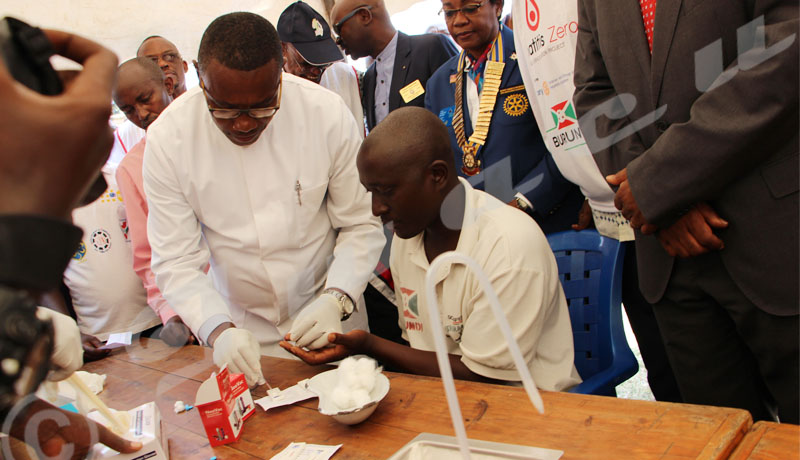On the occasion of the celebration of the World Hepatitis Day, the Ministry of Health has called on Burundians to go for regular hepatitis check-up.

Thaddée Ndikumana opening a free and voluntary hepatitis check-up at Saint Augustin stadium
“Over 2% of blood donors through the national center of blood transfusion-CNTS suffer from hepatitis,” says Thaddée Ndikumana, Burundian Minister of Public Health, adding that hepatitis is a reality in the country.
He says the disease can cause liver cancer which kills people.
“Those who have means should go for regular hepatitis check-up,” he says adding that hepatitis B and C check-up is done in Burundi although it’s expensive.
“The government of Burundi is determined to fight against hepatitis in collaboration with the international community in general and the World Health Organization in particular,” says Mr. Ndikumana.
As for Walter Kazadi Mulombo, Representative of the World Health Organization in Burundi, the highest number of hepatitis cases is recorded with children under five especially in countries with no vaccination against the disease from birth.
“I call on Burundi as a WHO member state to invest in a public health approach focused on the elimination of viral hepatitis B and C in Africa,” he also says.
Mr. Mulombo adds that the government of Burundi should invest in the vaccination of newborn babies against hepatitis B.
For him, countries should build on existing laboratory capacity in the fight against HIV and tuberculosis, integrate hepatitis surveillance into their national health information system, and ensure a reliable supply of medicines and diagnostics.
The World Hepatitis Day was celebrated in Burundi on August 12th. On this occasion, the Ministry of Health in collaboration with Rotary International organized a voluntary and free hepatitis check-up.
According to the World Health Organization, over 300 million people in the world are affected by viral hepatitis B and C causing 1,4 million deaths each year. Hepatitis is preventable, treatable and, in the case of hepatitis C, curable.



















 IWACU Open Data
IWACU Open Data

